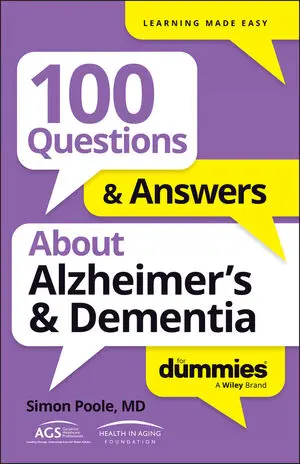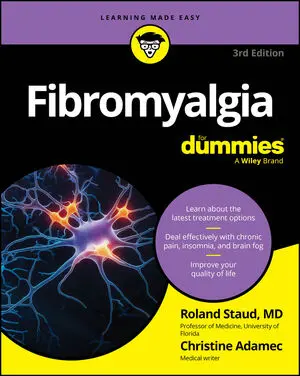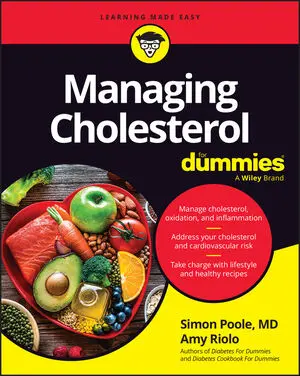Oops! Something went wrong while submitting the form.
Articles & Books From Diseases
Your Handy Reference for Alzheimer's & Dementia: Popular Questions and AnswersIf you or a loved one is dealing with Alzheimer's or dementia, or if you simply want to gain a better understanding of these conditions, look no further. 100 Questions & Answers About Alzheimer's & Dementia For Dummies is your complete guide to understanding the causes, signs, and diagnosis of these cognitive disorders.
Discover the latest science on fibromyalgia and get proven, practical steps to recover your quality of life Fibromyalgia For Dummies helps you understand the symptoms and causes of this challenging disease and guides you through steps you can take to reduce or eliminate your symptoms, decreasing your pain and fibro fog to manageable control.
Cheat Sheet / Updated 12-06-2025
This Cheat Sheet includes key information on the gamut of medications you may need to help you vanquish the pain of fibromyalgia — or at least calm it down. Whether it’s prescribed medications that may turn down the invisible pain knob, over-the-counter remedies to give you some relief, or alternative remedies that help, this Cheat Sheet has you covered.
A conversational guide to understanding and living with epilepsy Millions of people around the world have epilepsy, but the condition is widely misunderstood. Epilepsy For Dummies breaks through outdated stigmas surrounding this complex neurological disease. The book offers a 360-degree view by incorporating medical, social, and other perspectives to help you cope with epilepsy or support someone who has been diagnosed.
Cheat Sheet / Updated 09-30-2025
This Epilepsy For Dummies Cheat Sheet includes information about neuropsychological (neuropsych) tests, genetic testing for identifying the cause of epilepsy, the ketogenic diet as a treatment for epilepsy (when appropriate), and seizure safety devices to wear, or to use either at home or when out and about. Why neuropsychological tests matter for people who have epilepsy A neuropsychological test (or "neuropsych") looks at how the brain works in areas such as memory, attention, language, problem-solving, coordination, and emotions.
Take charge of your heart health with this guide to managing cholesterol Managing Cholesterol For Dummies demystifies cholesterol and clearly offers effective solutions for prevention, management, and lowering it which have changed in recent years. This approachable guide helps you understand why balancing overall cholesterol is important, and what you can do to improve your numbers and keep them in check.
Cheat Sheet / Updated 09-04-2025
This Cheat Sheet summarizes the most important information on cholesterol and its management, providing fast access to key tips and shortcuts, essential facts, definitions, or steps including those that are most practical, commonly used, or easy to forget. It’s your handy reference point for topic review or on-the-go learning.
Cheat Sheet / Updated 04-07-2025
Irritable bowel syndrome (IBS) is a condition that affects between 6 percent and 15 percent of the population, but diagnosis and treatment are often misunderstood. This Cheat Sheet gives you the lowdown on what IBS is, how it’s diagnosed and treated, and dietary tips to manage your IBS.How is IBS diagnosed?Irritable bowel syndrome, or IBS (not to be confused with inflammatory bowel disease, or IBD), is a disorder of gut-brain interaction (DGBI) that involves a disruption in the normal two-way communication between the gut and the brain.
Get trustworthy answers to all your questions about irritable bowel syndrome IBS For Dummies is a much-needed resource that covers all aspects of this common gastrointestinal disorder, from a basic understanding of how the digestive tract works to managing the difficult and often unpredictable symptoms that come with the condition.
Cheat Sheet / Updated 09-30-2024
Want some tips for your sobriety journey? This Cheat Sheet helps you challenge beliefs and societal pressures, break free from sobriety stigmas, understand your willpower’s role, and dispel conceptions about happiness.Challenging Beliefs and Societal PressuresDon’t underestimate the societal pressures to drink, especially in professional environments or social settings where alcohol is synonymous with relaxation and enjoyment.







